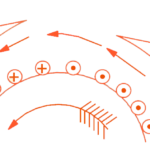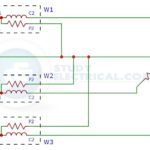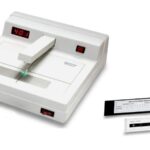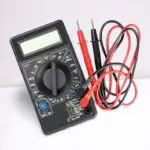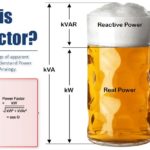What is Measurement?
The measurement of a given quantity is essentially an act or the result of comparison between the quantity (whose magnitude is unknown) and a predefined standard. Since two quantities are compared, the result is expressed in numerical values.
Measurement is the process by which one can convert physical parameters to meaningful numbers. The measuring process is one in which the property of an object or system under consideration is compared to an accepted standard unit, a standard defined for that particular property.
The number of times the unit standard fits into the quantity being measured is the numerical measure. The numerical measure is meaningless unless followed by a unit used since it identifies the characteristic or property measured.
In order that the results of the measurement are meaningful, there are two basic requirements:
- The standard used for comparison purposes must be accurately defined and should be commonly accepted.
- The apparatus used and the method adopted must be provable.
Evolution of Measurement Techniques
- Measurement techniques have been essential since the dawn of human civilization, initially used to regulate fair exchanges in barter trade.
- The industrial revolution of the nineteenth century spurred rapid development in new instruments and measurement techniques to meet the demands of industrialized production.
- Subsequently, there has been significant growth in industrial technology, particularly driven by advancements in electronics and computers in the latter part of the twentieth century.
- This technological progress has necessitated a parallel development of new instruments and measurement techniques.
- The widespread application of computers in industrial process control and monitoring has increased the demand for instruments to measure, record, and control process variables.
- Modern production techniques require increasingly tighter accuracy limits, and economic pressures to reduce production costs intensify, posing challenges for instruments to be both accurate and cost-effective.
- Instrument manufacturers focus their research and development efforts on addressing this challenge.
- In recent years, digital computing power has been incorporated into instruments to improve accuracy cost-effectively.
- Intelligent instruments featuring digital computing capabilities are prominently featured in current instrument manufacturers’ catalogs.
Significance of Measurements
The importance of measurement is simply and eloquently expressed in the following statement of the famous physicist Lord Kelvin:
“I often say that when you can measure what you are speaking about and can express it in numbers, you know something about it; when you cannot express it in numbers, your knowledge is of a meagre and unsatisfactory kind.”
The advancement of Science and Technology is dependent upon a parallel progress in measurement techniques. The reasons for this are obvious. As Science and Technology move ahead, new phenomena and relationships are discovered, and these advances make new types of measurements imperative.
New discoveries are not of any practical utility unless the results are backed by actual measurements. The measurements confirm the validity of a hypothesis but also add to its understanding. This results in an unending chain which leads to new discoveries that require more, new, and sophisticated measurement techniques. Hence, modern Science and Technology are associated with sophisticated methods of measurement.
There are two major functions of all branches of engineering:
- Design of equipment and processes.
- Proper operation and maintenance of equipment and processes.
Both these functions require measurements. This is because proper and economical design, operation, and maintenance require a feedback of information. Measurements play a significant role in achieving goals and objectives of Engineering because of the feedback information supplied by them.
Summary
| Aspect | Description |
|---|---|
| What is Measurement? | The act or result of comparing a quantity to a predefined standard, converting physical parameters into meaningful numbers. |
| The measuring process compares the property of an object/system to an accepted standard unit. | |
| The numerical measure is obtained by determining how many times the standard unit fits into the quantity being measured. | |
| Requires accurately defined and commonly accepted standards, as well as provable apparatus and methods. | |
| Significance of Measurements | Measurement is crucial for understanding and advancing science and technology. |
| Measurements validate hypotheses and enhance understanding, leading to new discoveries and requiring sophisticated techniques. | |
| Measurements are essential for the practical utility of new discoveries in science and technology. | |
| Functions in Engineering | Measurement plays a vital role in the design, operation, and maintenance of equipment and processes in all branches of engineering. |
| Proper design, operation, and maintenance require feedback information provided by measurements. |
- Measurement involves comparing a quantity to a predefined standard, resulting in numerical values that convert physical parameters into meaningful numbers.
- For measurements to be meaningful, two basic requirements must be met: accurately defined and commonly accepted standards, and provable apparatus and methods.
- Lord Kelvin emphasized the importance of measurement, stating that knowledge expressed in numbers is essential for understanding.
- Progress in science and technology depends on advancements in measurement techniques, as new discoveries rely on accurate measurements for validation and understanding.
- In engineering, measurement serves two primary functions: the design of equipment and processes, and the proper operation and maintenance of these systems.
- Feedback from measurements is crucial for achieving engineering goals and objectives, ensuring proper design, operation, and maintenance for optimal performance.

